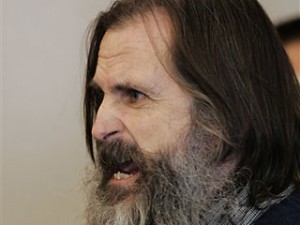When the Catholic lumpen-laity needs to be told what the Church teaches, Our Sunday Visitor
is there to teach it. So it should not be surprising that, in the wake
of the brouhaha over Pope Benedict’s statement on condoms, OSV should
get on the horn to Father Martin Rhonheimer, the Opus Dei professor who
has made a specialty of the subject. In an extended Q and A, Rhonheimer
(among other things) addressed the knee-jerk assertions of the likes of Father Joseph Fessio and George Weigel that what the pope said changed nothing in Church teaching.
This is not true. Pope Benedict, after what I assume careful consideration, has
made a public statement that has changed the discourse on these issues, both
inside and outside the Church. For the first time it has been said by the pope
himself, though not in a formal teaching act of the Church’s Magisterium, that
the Church does not unconditionally “prohibit” prophylactic use of condoms.
Rhonheimer, as OSV points out, caught a lot of flak from right-wing
policers of Catholic discourse back in 2004 when he wrote an article for
the Tablet taking a more nuanced approach to the condom issue than the absolutists approved. (For the back story, see this account by Austen Ivereigh, who edited the Tablet
at the time.) No doubt there’s room for disagreement with Rhonheimer’s
interpretation of what the pope has said. The point is: Catholics in the
pews are owed a well-informed and balanced account.
But where are the American bishops? Oh, when the news first broke, a few
gave quick assurances that this was nothing to trouble about.
Archbishop Charles Chaput of Denver wrote up his dismissal for the First Things blog. Archbishop Timothy Dolan of New York linked to Weigel. But since then, the only commentary
I’ve seen has been by Bishop Robert Lynch of St. Petersburg, who
recounts his own experience dealing with the issue in Roman context when
he worked for the USCCB back in the 1990s.
In recent years, the bishops have been eager to assert their teaching
authority in their dioceses, over against mere academic theologians and
self-appointed lay scribblers. But when a tough issue like this comes
along, all of a sudden the cat’s got their tongues. Some Magisterium.

